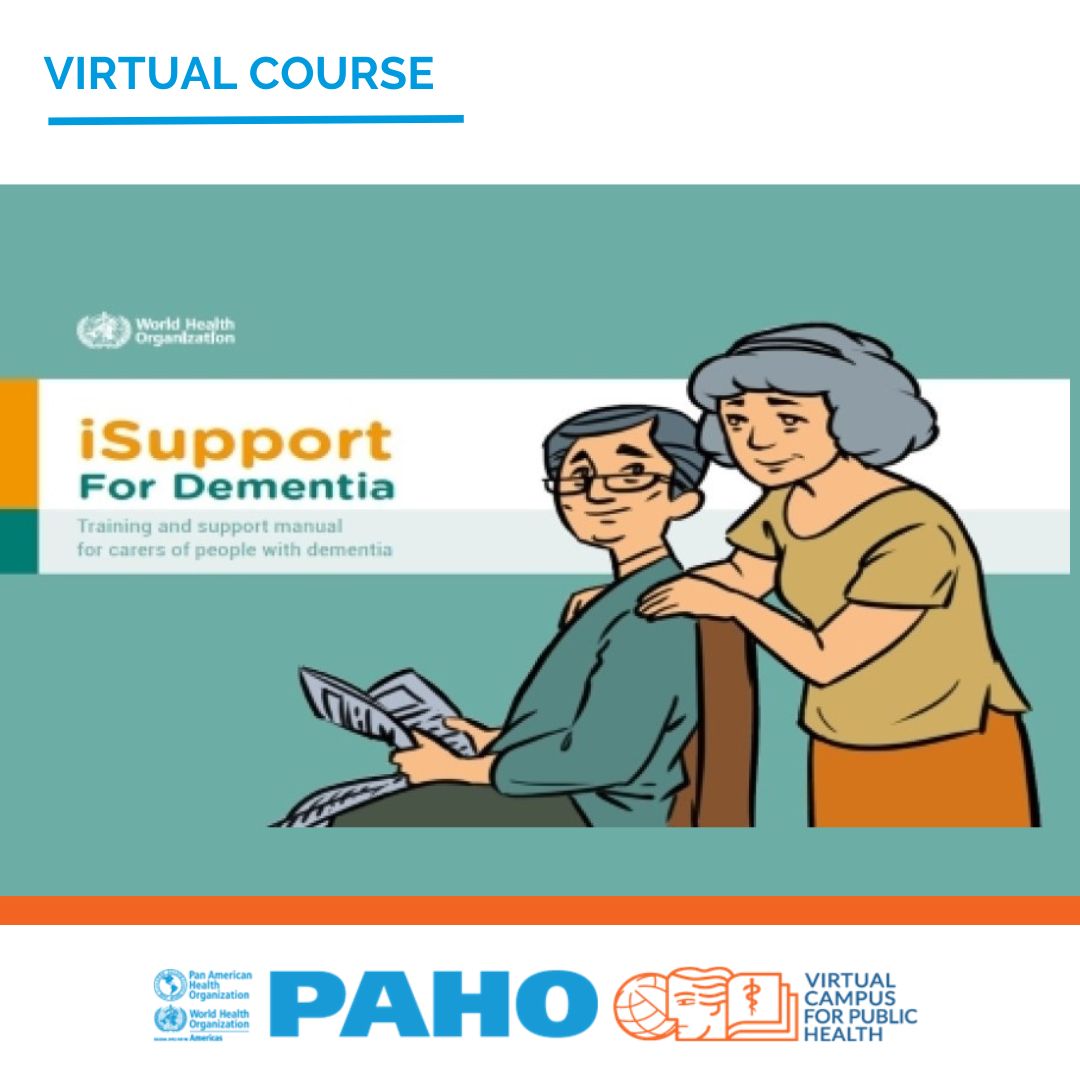
Introduction
Worldwide, around 50 million people have dementia, a number that is projected to triple by 2050. Dementia causes significant psychological, emotional and social impacts on families, especially carers of people with dementia. iSupport aims to prevent and/or decrease mental and physical health problems associated with caregiving and to improve the quality of life of those caring for people with dementia.
iSupport is a self-help tool that provides skills and knowledge training for carers of people with dementia, including family members, relatives and friends. It includes five modules and accompanying exercises, namely: (i) introduction to dementia; (ii) being a caregiver; (iii) caring for me; (iv) providing everyday care; and (v) dealing with behaviour changes. The modules and exercises reflect those included in the hardcopy version of iSupport.
Course purpose
iSupport has been developed to provide accessible, evidence-based training and information, tailored to carers’ needs. It aims to improve knowledge and caregiving skills, such as carers’ ability to cope with dementia symptoms and care for themselves. iSupport seeks to enable people with dementia to live in the community while preventing or reducing carer stress. The lessons included in this manual were carefully designed to help carers tackle the important challenges that they may face when caring for someone living with dementia.
Main objective
Improve knowledge of dementia and caregiving skills, such as carers’ ability to cope with dementia symptoms and engage in self-care.
Specific objectives
- Improve carers understanding of dementia, including what happens to people with dementia and what to do if you think that your family member or friend has dementia.
- Understanding how to improve communication, supported decision-making and involving others in caring for the person living with dementia.
- Reducing carer stress by making time for pleasant activities and thinking differently.
- Building carers’ capacity to provide care for the person living with dementia, with a focus on eating and drinking, including creating more pleasant mealtimes and preventing health problems, using the toilet and continence care, and personal care.
- Understanding common changes in behaviour for people with dementia that might be distressing and upsetting for both the person with dementia and the carer. These symptoms include memory loss, aggression, depression and anxiety, difficulty sleeping, delusions and hallucinations, repetitive behaviour, walking and getting lost as well as poor or decreased judgement.
Audience
This iSupport manual is primarily for carers of people with dementia, including family members and relatives, friends, and other carers. However, iSupport may also be of interest to others, for example:
- Nongovernmental organizations (NGOs) providing skills training, support and/or information to carers of people with dementia.
- health and social care workers providing care and information to carers of people with dementia; and
- Private sector representatives involved in the development of health technologies for dementia, dementia health care service delivery or health care insurance.
Module Contents
|
Introduction to dementia |
What is dementia and how does it affect someone |
|
Being a carer |
The journey together Improving communication Supported decision-making Involving others |
|
Caring for me |
Reducing stress in everyday life Making time for pleasant activities Thinking differently |
|
Providing everyday care |
Eating and drinking: more pleasant mealtimes Eating, drinking and preventing health problems Toileting and continence care Personal care An enjoyable day |
|
Dealing with behaviour changes |
Introduction Memory loss Aggression Depression, anxiety and apathy Difficulty sleeping Delusions and hallucinations Repetitive behaviours Waking and getting lost Changes in judgement
|
